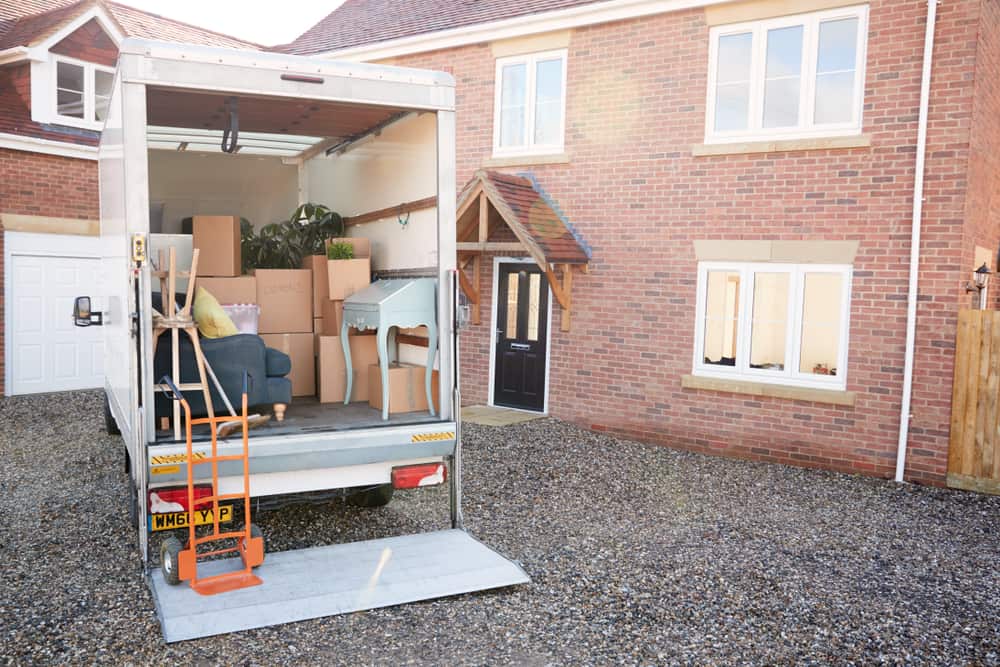
How Much Money Do I Need To Move House In Uk?
Are you ready to experience the joys of moving house? The excitement of finding a new home, packing up your belongings, and settling into a new community can be exhilarating.
But before you start planning your housewarming party, it’s important to consider the financial aspect of moving. How much money do you need to move house in the UK? Well, let’s just say, it’s not exactly pocket change.
Moving house can be a costly endeavour, and it’s important to budget accordingly. From legal fees and stamp duty to hiring a removal company and additional expenses, the costs can quickly add up.
But fear not, fellow adventurers, as we navigate the financial waters of moving, we’ll provide you with the information you need to make informed decisions and ensure a smooth transition to your new home. So, grab a cup of tea, sit back, and let’s dive into the world of moving (and spending).
Key Takeaways
- Moving house can be costly, so it’s important to budget accordingly and calculate all expenses.
- Hiring a professional moving company can be more expensive than DIY options, but they can help with heavy lifting.
- Legal fees and stamp duty are required when changing residences, so these costs must be taken into account.
- It’s important to choose the right removal company by getting quotes from different companies and communicating expectations clearly.

How Do You Calculate Cost Of Moving?
To figure out how much you’ll need to move, start by calculating the cost of packing supplies, transportation costs, and storage options.
If you plan to do the move yourself, then you’ll need to factor in the cost of renting a moving truck, packing supplies, and any additional insurance coverage you may need.
However, if you decide to hire a professional moving company, you’ll need to consider the cost of their services, which typically include packing, loading, transportation, unloading, and unpacking.
When it comes to packing supplies, you’ll need to consider the cost of boxes, tape, bubble wrap, and other materials.
Additionally, transportation costs will depend on the distance you’re moving and the size of your move.
If you need to store your belongings, you’ll also need to factor in the cost of storage options.
Lastly, you’ll need to consider insurance coverage, which can be provided by the moving company or purchased separately.
By calculating these costs, you can estimate how much money you’ll need to move. Now, let’s move on to legal fees and stamp duty.
Legal Fees and Stamp Duty
You’ll be required to cover legal fees and stamp duty when changing residences, so it’s important to take these costs into consideration. The conveyancing costs, which are the fees charged by solicitors or licensed conveyancers for handling the legal aspects of buying or selling a property, can vary depending on the complexity of the transaction. Additionally, solicitor fees, which are the costs for their services, will also need to be factored in.
Land registry fees, which are charged for registering the new ownership of the property, and search fees, which are charged for conducting various searches related to the property, will also need to be taken into account.
Moreover, stamp duty is a tax that is paid on most property purchases in the UK. The amount of stamp duty you will need to pay depends on the value of the property you are purchasing. There is a stamp duty threshold for properties up to £500,000, but if the property is worth more than this, you will need to pay a higher rate. It’s important to note that stamp duty rates have changed due to COVID-19, so it’s best to consult with your solicitor or conveyancer for the most up-to-date information.
After covering the legal fees and stamp duty costs, the next step is to consider hiring a removal company.
Hiring a Removal Company
If you’re feeling overwhelmed by the thought of packing up all your belongings, consider hiring a removal company to help with the heavy lifting. They can take care of everything from packing tips to storage solutions and insurance options.
Choosing the right company is important, so do your research and ask for recommendations from friends and family. Keep in mind that hiring a removal company can be more expensive than DIY moving options, but it can also save you time and stress.
Make sure to get a few quotes from different companies and compare their services and prices. Once you’ve chosen a company, communicate your expectations clearly and ask any questions you may have.
With the help of a trustworthy removal company, your move can be a smooth and stress-free experience.
Moving to a new house requires careful planning and consideration of additional expenses to consider, such as utility bills and council tax.
Additional Expenses to Consider
Don’t forget about the extra costs that come with moving. In addition to hiring a removal company, there are other expenses that you need to consider.
One of these expenses is moving insurance, which can protect your belongings during the move. Utility deposits are another expense that you need to keep in mind when moving. Many utility providers require a deposit before they can set up an account for you.
Renovation costs are also something you should think about, especially if you’re moving into a fixer-upper. These costs can add up quickly if you need to make major repairs or renovations to your new home.
Cleaning services are another expense that you should consider when moving. You may need to hire a cleaning company to clean your old home or your new home before or after the move.
Finally, storage fees are also something to keep in mind if you need to store your belongings for a period of time during the move. These fees can vary depending on the size of the storage unit and the length of time you need to store your belongings.
By considering all of these additional expenses, you can budget accordingly and ensure that your move goes smoothly.
Frequently Asked Questions
What is the average time frame for completing a house move in the UK?
On average, a house move in the UK takes 8-12 weeks. Moving logistics, property chains, legal requirements, estate agent fees, and mortgage approvals can impact the timeline. It’s important to plan ahead and work with professionals for a smooth and stress-free move.

Is it necessary to purchase home insurance when moving house in the UK?
When moving house in the UK, it is important to consider purchasing home insurance for protection against unforeseen circumstances. Benefits include coverage options, cost saving tips, and legal requirements. It is essential to research insurance provider options to find the best fit for your needs.
What are the potential consequences of not hiring a reputable removal company?
Choosing an unprofessional removal company can lead to disastrous consequences. From damage claims and hidden fees to delays and theft risks, the risks are too high. Don’t risk your safety and hire a reputable company.
Are there any tax implications to consider when moving house in the UK?
It’s important to consider the tax implications of moving house in the UK, including stamp duty, capital gains, inheritance tax, and property transfer. Solicitor fees may also apply. We recommend seeking professional advice to ensure a safe and secure move.
Can you negotiate on the price of a property during the buying process?
Negotiation strategies can be used to lower the price of a property during the buying process. These include researching market conditions, asking for seller incentives, and conducting thorough property inspections. Buyer financing can also be a bargaining tool.
For more information you can call us 01733 350955 or 07950 776867 or email us houseremovals2013@gmail.com or visit our website.


